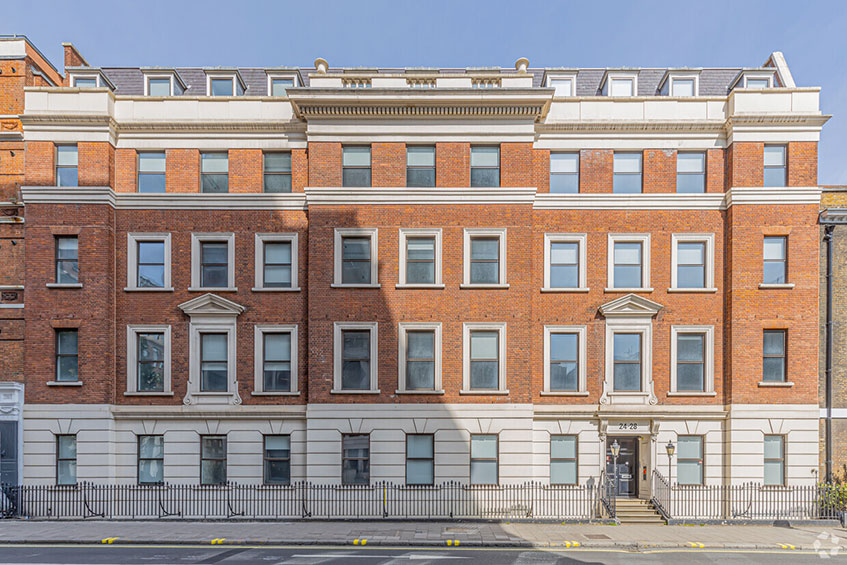Building dispute – Adjudication award – Enforcement – Dispute arising under building contract – First adjudicator making award in favour of claimant contractor – Further dispute referred to second adjudication – Claimant seeking enforcement of second adjudication — Whether second adjudicator deciding issue already determined in first adjudication – Whether alteration of second adjudicator’s decision constituting amendment beyond correction of clerical error – Claim allowed
The claimant was employed by the defendant to refurbish a mews house. The contract was in the standard JCT prime cost building contract form (2006 Revision 1 with amendments) and provided that either party could refer any dispute or difference to adjudication. The date for completion was subject to an extension of time provision.
Under the contract, completion was scheduled for in December 2008. The claimant did not complete the works that deadline and an extension of time was given until 31 January 2009. By April 2009, the defendant had taken possession of the ground floor. Completion was achieved on 31 July 2009.
The claimant had applied for extensions of time up to 1 May 2009, which were disputed, and, by letter dated July 2009, the claimant gave the defendant notice of adjudication (the first adjudication). The first adjudicator decided that the claimant was entitled to an extension of time but only to 6 March 2009 and, with regard to the contract fee, it was entitled to payment on the basis of the number of weeks to the date of completion as extended. Thus, the total extended contract period was 34 weeks, which resulted in a total contract fee of £119,000. From that figure, £87,500 was deducted because it had been previously paid. The net figure plus interest was ordered to be paid.
A further dispute arose in respect of the final account, which was again referred to arbitration. The claimant asserted that the total value of the final account was more than £1m so that, after deductions for sums already paid, it was entitled to £217,396.34. The defendant raised the jurisdictional objection that, in so far as the claimant claimed an adjusted contract fee, that question had already been decided by the first adjudicator. However, the second adjudicator found in favour of the claimant, deciding that it was entitled to a contract fee of £131,161.80. He subsequently amended that figure following an arithmetical error.
The claimant brought a claim to enforce that decision. Issues arose concerning as to whether: (i) the dispute decided in the second adjudication had been decided in the earlier adjudication; and (ii) the second adjudicator’s correction to his decision went beyond the correction of a clerical error.
Held: The claim was allowed.
(1) Where a defendant resisted the enforcement of an adjudicator’s decision on the ground that the dispute was the same or substantially the same as one that had been decided in an earlier adjudication, the parties were bound by the decision of an adjudicator on a dispute or difference until it was finally determined by court or arbitration proceedings or by an agreement made by the parties. The extent to which a decision or a dispute was binding would depend on an analysis of the terms, scope and extent of the dispute or difference referred to adjudication and of the adjudicator’s decision. The correct approach was to ask whether the dispute was substantially the same as the earlier dispute and whether the adjudicator had resolved a dispute that was the same or fundamentally the same as the earlier dispute. Whether one dispute was substantially the same as another was a question of fact and degree: Benfield Construction Ltd v Trudson (Hatton) Ltd [2008] EWHC 2333, [2008] CILL 2633 applied, HG Construction Ltd v Ashwell Homes (East Anglia) Ltd [2007] EWHC 144 (TCC); [2007] BLR 175 considered.
One had to determine what the dispute referred to in the earlier adjudication. Next, it had to be determined whether and to what extent the parties had given the adjudicator jurisdiction to address matters that were not obviously within the ambit of the referred dispute. It was then necessary to examine what the adjudicator had decided, first in respect of the referred dispute and any arguable defence and, second, if he had decided something that had not been referred or did not fall within his jurisdiction. Any decision that could be described as resolving the dispute was binding and could not be raised or adjudicated on again in a later adjudication. In contrast, any decision that did not decide the dispute was not binding and could be adjudicated on in any later adjudication.
In the instant case, the dispute that had arisen before the first adjudication involved two elements: (i) the further extension of time to which the claimant was entitled; and (ii) a consequential entitlement to the contract fee at the specified rate. The written submissions, the arguments or the correspondence did not give the first adjudicator jurisdiction over any issue regarding the contract fee rate. It followed that the second adjudicator did have jurisdiction to rule on the issue of whether the claimant was entitled to an adjustment of the contract fee rate and, accordingly, the second adjudication decision was enforceable.
(2) An adjudicator could revise a decision only if it was an implied term of the contract by which adjudication was allowed. The so-called adjudication “slip rule” could not be used to enable an adjudicator who had had second thoughts and intentions to correct an award. The time for revising a decision by way of the slip rule would be what was reasonable in all the circumstances. It would be an exceptional case in which the revision could be made more than a few days after the decision since that would contravene the policy of the Housing Grants, Construction and Regeneration Act 1996: YCMS Ltd (t/a Young Construction Management Services) v Grabiner [2009] EWHC 127 (TCC), [2009] BLR 211 followed.
In the instant case, the second adjudicator had made an error and that he was applying the slip rule. It could not be argued that there was here an implied term that the adjudicator could, within a reasonable time, revise his decision for patent errors. It had not been suggested that the second adjudicator was having second thoughts. He was merely correcting his error, namely his failure to compare, arithmetically, like for like, the total actual prime cost with the originally estimated prime cost. Thus, the second adjudicator had acted in accordance with the implied term of the contract and had made the revision within a reasonable time, that is, two days after the original decision.
Samuel Townend (instructed by CJ Hough & Co Ltd, of Crawley) appeared for the claimant; Camille Slow (instructed by Quercus Law) appeared for the defendant.
Eileen O’Grady, barrister






